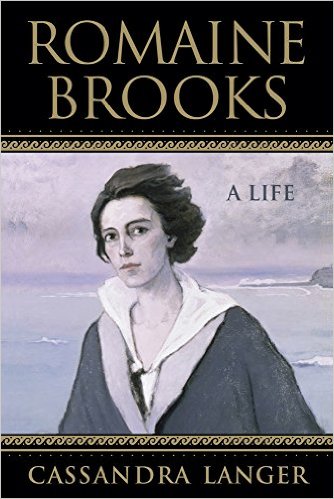Copyright gives authors of creative works (books, music, art, movies, and the like) a bundle of rights to control how their works are used, and it gives users a corresponding set of rights to make socially valuable uses of copyrighted works without right holder permission. The Constitutional purpose of these laws is to “promote Progress” in culture and learning. Legal professionals support clients, whether authors or members of the public, by helping them understand and employ their rights.
Students in the clinic gain exposure to a variety of kinds of copyright matters, including registering works with the US Copyright Office, drafting license agreements, sending and responding to cease and desist letters, sending and responding to DMCA takedown notices, providing opinion letters in support of fair use, and more. They also work with clinical faculty on the kinds of policy projects that make practice in Washington, DC, especially exciting, including advocacy for legal reform, participation in administrative policy formulation, and even media outreach campaigns. As a result of this wide-ranging practice, students gain an appreciation for the public interest dimension of copyright law; they see the law from multiple angles and interests, and how it operates in multiple venues and contexts.
Clients of the clinic get representation in matters where they might otherwise be unable to assert their rights, and a level of representation that rivals that provided by private law firms. In exchange for their agreeing to work with student attorneys, clients ranging from independent artists to non-profit organizations, small businesses to private individuals receive careful counsel and effective written work product.
Intellectual Property Clinic Provides Counseling for Look Who’s Driving
Autonomous vehicles are now being tested on public roads around the world. As ambitious innovators race to develop what they see as the next big thing, some experts warn there are still daunting challenges ahead, including how to train artificial intelligence to be even better than humans at making life-and-death decisions.
How do self-driving cars work? How close are we to large-scale deployment of them? And will we ever be able to trust AI with our lives? The film aired on to PBS on Wednesday, October 23 on PBS’s flagship science series NOVA. IP Clinic student attorneys provided a fair use analysis of third party materials used throughout the film to ensure that unlicensed materials met fair use standards under copyright laws.
Their work on this important film continues the long-standing effort our clinic has undertaken to ensure that documentary filmmakers can get their stories out to the world. The Documentary Filmmakers Statement of Best Practices in Fair Use was authored by clinic founder Professor Peter Jaszi and School of Communication Professor Pat Aufderheide.
Video: Look Who’s Driving
Click here for more on Best Practices in Fair Use.
Student attorneys at the Glushko-Samuelson IP Clinic provide copyright counseling related to fair use issues for various filmmakers, artists, and activists, including:
“Silicon Valley: The Untold Story.”
Student attorneys Kelley and Whinnie provided an essential and extensive fair use analysis of over 1000 clips, documenting that all third-party material meets recognized fair use legal standards. Additionally, students reviewed and ensured that depictions of prominent figures featured in the film series complied with privacy law.
Student attorneys Salvatore Angotti and Dima Budron counseled Jonathan Keijser at Wire Walker Studios on his use of third-party copyrighted material in his documentary, What Would Beethoven Do? As a deliverable, they drafted a fair use memo explaining what uses were lawful and the legal reasoning behind this conclusion. Along the way, Salvatore and Dima also guided the client with licensing of the works that were not fair use.
“It’s mainly a white world. The corps has to be lily white. It hasn’t changed.” – Joan Myers Brown, Founder of PHILADANCO
“To date, the legacy of painter Romaine Brooks has been shrouded with mystery. My latest book, Romaine Brooks: A Life, brings to light new and game-changing information that challenges all we thought we knew about this controversial artist.” – Cassandra Langer
“All because of you and your team . . . Romaine Brooks has been completely repositioned in the history of art. This is where scholarship really pays off for those of us that stick with it through thick and thin.” – Cassandra Langer to Glushko-Samuelson Intellectual Property Clinic Founder Professor Peter Jaszi

“As gripping as Serial or Making a Murderer” – The Washington Post
“Headlines Fade. The Story Continues”
Student attorneys have worked extensively with Retro Report, an independent nonprofit news organization that critically examines major events and news coverage of our past.
https://www.facebook.com/RetroReport
NYTimes on McDonald’s “Hot Coffee” Case
The Takeaway (NPR station WNYC) on “War on Cancer”
The Takeaway on “Walter Reed Medical Center”
Huffington Post on “Free Willy”
The Rule
“This uplifting documentary offers a rare ray of hope in its portrayal of an urban school that’s defying the odds” – Frank Schack, The Hollywood Reporter
The End of the Line
“A true story about faith, fracking, and the power of the people” – Wilder Productions
Theatrical Trailer from Wilder Productions on Vimeo.
I Voted? A non-partisan political documentary by Jason Grant Smith
“While democracy does not begin with elections, it can end when we fail to protect them. Personally, I cannot think of anything more important to the future of our democracy than securing the integrity of the vote.” – Jason Grant Smith
Paul Dougherty
Clinic Students Bring Video Editor, “Citizen Archivist” Back Online
“The film features the voices of consumers, critics, and pornography producers and performers.”
Sita Sings the Blues
The clinic conducted legal research in regards to the use of a song by Annette Henshaw in Nina Paley’s film, “Sita Sings the Blues” (here’s the song in the film) and advised her about the potential copyright and licensing issues. She credited the clinic in various interviews:
June 2009 interview with Creative Commons, Nina Paley’s blog, Sita sings the blues
Latinos Beyond Reel
“In Latinos Beyond Reel, filmmakers Miguel Picker and Chyng Sun examine how US news and entertainment media portray — and do not portray — Latinos.”
“An engaged, dynamic and accessible overview of the historically problematic portrayal of Latinos in U.S. news and entertainment media. Offers a critical and comprehensive insight on the media representation of Latinos for students and media professionals alike.” – Jose Carlos Lozano, Professor of Communication at Texas A&M International University
Dakota 38
“In the spring of 2005, Jim Miller, a Native spiritual leader and Vietnam veteran, found himself in a dream riding on horseback across the great plains of South Dakota. Just before he awoke, he arrived at a riverbank in Minnesota and saw 38 of his Dakota ancestors hanged.”
A film by Smooth Feather Productions
Revolution ’67
“An illuminating account of events too often relegated to footnotes in U.S. history — the black urban rebellions of the 1960s.”
Revolution ’67 from Jerome Bongiorno on Vimeo.
“Revolution ’67 is an anatomy of a riot. It focuses on the factors that precipitated the Newark riots; the explosive urban rebellion which erupted in New Jersey, in July 1967 – a tragedy caused by similar factors that sparked “race riots” across America. These factors are still causing riots today in US cities like Ferguson, MO and Baltimore, MD. Revolution ‘67 is a multi award-winning, illuminating account of events too often relegated to footnotes in U.S. history — the black urban rebellions of the 1960s. Focusing on the six-day Newark, N.J., outbreak in mid-July, the film reveals how the event began as spontaneous revolts against poverty and police brutality and ended as fateful milestones in America’s struggles over race and economic justice. Voices from across the spectrum — activists Tom Hayden and Amiri Baraka, journalist Bob Herbert, former Newark Mayor Sharpe James, and other officials, National Guardsmen and Newark citizens — recall lessons as hard-earned then as they have been easy to neglect since.”
A co-production with the Independent Television Service (ITVS)
“An immigrant story in a world in which patriotism has morphed into murder. When Rana Singh Sodhi’s brother is killed in America’s first post-9/11 revenge murder, he begins a journey to reclaim his American dream and fight the hate that continues to threaten his community.”
“The story of New York’s indomitable, street-wise champion of the arts who introduced interracial casting to the American stage, brought us free Shakespeare in the Park, Hair, and A Chorus Line, and nurtured many of our greatest playwrights, directors, and actors.”
“A documentary that explores the cumulative effect of repetitive trauma in America’s Game from Pee Wees to the pros.”
Smiling Through the Apocalypse
“A personal narrative about my late father, Esquire Editor Harold T.P. Hayes, and also an intimate time capsule of what many have said, was the greatest period in magazine journalism. During Dad’s tenure, Esquire was a galvanizing force in American culture permitting unprecedented artistic freedom to the most talented artists and writers of the time, including Tom Wolfe, Gay Talese, Nora Ephron, Peter Bogdanovich, Gore Vidal, Diane Arbus, and Norman Mailer.” – Director Tom Hayes
Other Clients
The clinic provided IP advice and registered trademarks as well as a copyright for the client’s personnel management manual.




You must be logged in to post a comment.